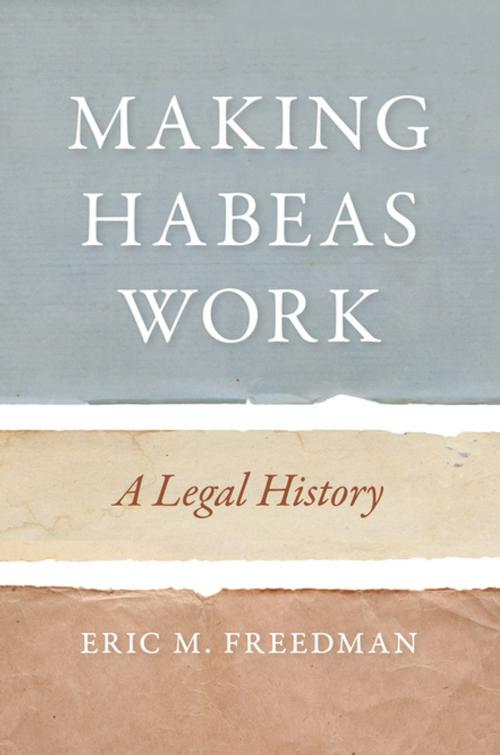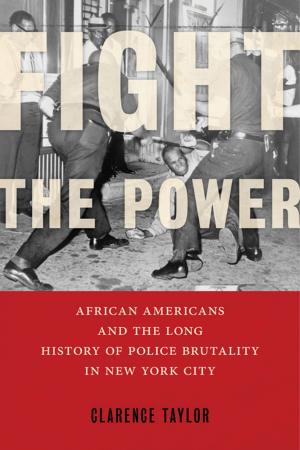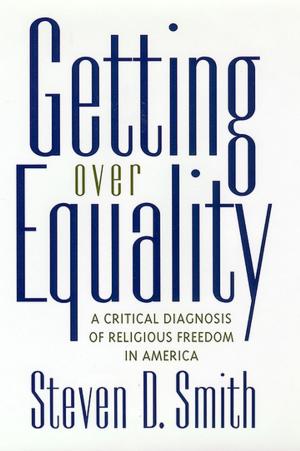Making Habeas Work
A Legal History
Nonfiction, Reference & Language, Law, Jurisprudence, Legal History| Author: | Eric M. Freedman | ISBN: | 9781479858941 |
| Publisher: | NYU Press | Publication: | June 12, 2018 |
| Imprint: | NYU Press | Language: | English |
| Author: | Eric M. Freedman |
| ISBN: | 9781479858941 |
| Publisher: | NYU Press |
| Publication: | June 12, 2018 |
| Imprint: | NYU Press |
| Language: | English |
A reconsideration of the writ of habeas corpus casts new light on a range of current issues
Habeas corpus, the storied Great Writ of Liberty, is a judicial order that requires government officials to produce a prisoner in court, persuade an independent judge of the correctness of their claimed factual and legal justifications for the individual’s imprisonment, or else release the captive. Frequently the officials resist being called to account. Much of the history of the rule of law, including the history being made today, has emerged from the resulting clashes.
This book, heavily based on primary sources from the colonial and early national periods and significant original research in the New Hampshire State Archives, enriches our understanding of the past and draws lessons for the present.
Using dozens of previously unknown examples, Professor Freedman shows how the writ of habeas corpus has been just one part of an intricate machinery for securing freedom under law, and explores the lessons this history holds for some of today’s most pressing problems including terrorism, the Guantanamo Bay detentions, immigration, Brexit, and domestic violence.
Exploring landmark cases of the past - like that of John Peter Zenger - from new angles and expanding the definition of habeas corpus from a formal one to a functional one, Making Habeas Work brings to light the stories of many people previously overlooked (like the free black woman Zipporah, defendant in “the case of the headless baby”) because their cases did not bear the label “habeas corpus.”
The resulting insights lead to forward-thinking recommendations for strengthening the rule of law to insure that it endures into the future.
A reconsideration of the writ of habeas corpus casts new light on a range of current issues
Habeas corpus, the storied Great Writ of Liberty, is a judicial order that requires government officials to produce a prisoner in court, persuade an independent judge of the correctness of their claimed factual and legal justifications for the individual’s imprisonment, or else release the captive. Frequently the officials resist being called to account. Much of the history of the rule of law, including the history being made today, has emerged from the resulting clashes.
This book, heavily based on primary sources from the colonial and early national periods and significant original research in the New Hampshire State Archives, enriches our understanding of the past and draws lessons for the present.
Using dozens of previously unknown examples, Professor Freedman shows how the writ of habeas corpus has been just one part of an intricate machinery for securing freedom under law, and explores the lessons this history holds for some of today’s most pressing problems including terrorism, the Guantanamo Bay detentions, immigration, Brexit, and domestic violence.
Exploring landmark cases of the past - like that of John Peter Zenger - from new angles and expanding the definition of habeas corpus from a formal one to a functional one, Making Habeas Work brings to light the stories of many people previously overlooked (like the free black woman Zipporah, defendant in “the case of the headless baby”) because their cases did not bear the label “habeas corpus.”
The resulting insights lead to forward-thinking recommendations for strengthening the rule of law to insure that it endures into the future.















